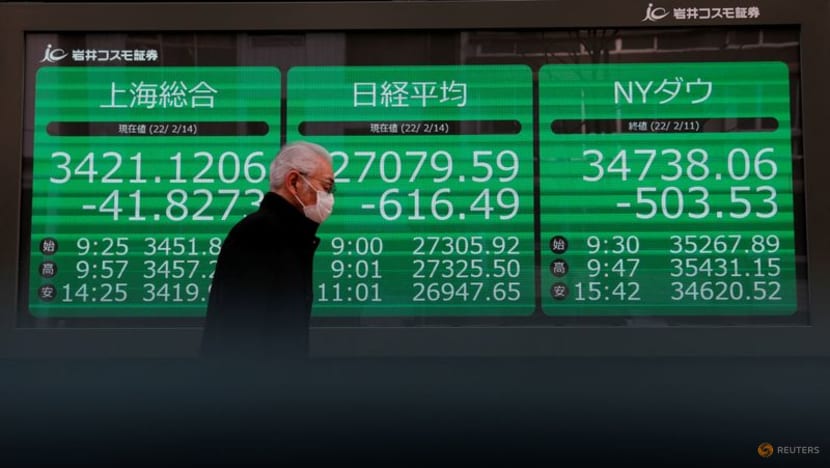
Asia stocks continued a decline from Wall Street on Tuesday, and U.S. long-term Treasury yields sank to a four-month low, pulling the U.S. dollar down against the yen and other currencies as investors worried about the risk of global recession.
Another way to use สล็อตxo that have long been popular and still popular today is to play through PC devices.
There were also jitters about an escalation in Sino-U.S. tension with U.S. House of Representatives Speaker Nancy Pelosi set to begin a visit to Taiwan against the objections of China, which regards the self-governed island as a breakaway province.
Australian equities declined amid an uncertain outlook for commodity demand - which also weighed on crude oil prices - while the local dollar hovered near its highest versus its U.S. counterpart since mid-June with the central bank widely expected to deliver a third consecutive half-point interest rate hike later in the day.
The Australian and South Korean equity benchmarks suffered losses of about 0.3 per cent each, while Japan's Nikkei tumbled 1.17 per cent.
Chinese blue chips dropped 1.06 per cent and Hong Kong's Hang Seng lost 1.1 per cent.
Taiwan's stock index slid 1.68 per cent.
MSCI's broadest index of Asia-Pacific shares retreated 0.8 per cent.
Australian equities declined amid an uncertain outlook for commodity demand - which also weighed on crude oil prices - while the local dollar hovered near its highest versus its U.S. counterpart since mid-June with the central bank widely expected to deliver a third consecutive half-point interest rate hike later in the day.
The Australian and South Korean equity benchmarks suffered losses of about 0.3 per cent each, while Japan's Nikkei tumbled 1.17 per cent.
Chinese blue chips dropped 1.06 per cent and Hong Kong's Hang Seng lost 1.1 per cent.
Taiwan's stock index slid 1.68 per cent.
MSCI's broadest index of Asia-Pacific shares retreated 0.8 per cent.



